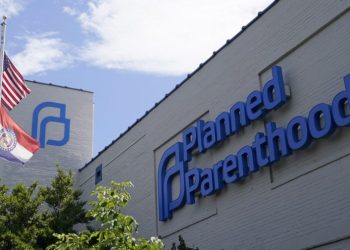Anti-tobacco advocates are growing increasingly concerned that a divided White House will bow to political pressure from the tobacco industry and scrap a plan to ban menthol cigarette sales, amid concerns of a backlash among Black voters ahead of the 2024 election.
The White House is facing dueling messages, and advocates say they’ve been told the next week could make or break their efforts, if President Biden hopes to have the ban take force before the end of his first term.
The tobacco industry has long been accused of targeting the Black community, especially with menthol products. Public health experts say banning menthol could save hundreds of thousands of lives, particularly among Black smokers. An estimated 85 percent of Black smokers use menthol cigarettes, according to federal statistics.
A potential ban on menthol cigarettes has been discussed across multiple administrations for more than a decade and has yet to come to fruition. But the political tide has been shifting in recent years, and a majority of the Congressional Black Caucus supports Biden’s proposal.
Still, the White House in December delayed the plan until at least March, after critics warned the White House that such a ban would anger the Black community during an election year, when Biden is already struggling to maintain their support.
The delay came about two weeks after top administration officials met with tobacco industry lobbyists, including former Democratic congressmen, as well as high-profile civil rights attorney Ben Crump and a top executive from Rev. Al Sharpton’s National Action Network.
A public health lobbyist noted that all the people who met with the White House on Nov. 20 had some sort of paid affiliation with the tobacco industry. Among them was Democratic pollster Cornell Belcher, who circulated a poll commissioned by tobacco company Altria that showed young voters and minority voters oppose the ban.
“You know, that spooked some folks, and I think it spooked the White House enough that we’re still pushing” well after the rule was supposed to be published, the lobbyist said.
Since some of the provisions would take a year to implement, Biden would need to publish the rule in the next week to ensure it takes effect before a potential new administration takes over.
The White House is also facing a potential deadline with the Congressional Review Act, which would allow Congress to vote to overturn the rule if it is announced too close to the end of the year. Some experts think the White House has until the spring.
But if the rule is published, the tobacco industry is expected to sue, which could potentially delay implementation even further.
“We certainly know that the longer these rules sit out there, the more time the tobacco industry is going to use to just try to pummel them and make up new claims,” said Erika Sward, assistant vice president of national advocacy at the American Lung Association.
Public health groups are ramping up the pressure on the White House to publish the final rule, saturating the airwaves and newspapers with ads from Black public health leaders, big city health officials and prominent Democratic mayors, including Karen Bass of Los Angeles.
The African American Tobacco Control Leadership Council is leading a “menthol funeral” on Jan. 18 in Washington, just steps from the White House, to memorialize the 45,000 Black Americans who die from tobacco-related illness each year, complete with a funeral procession and service.
“This is ultimately coming down to a political decision by the president and his senior advisers,” Sward said, adding that Biden’s legacy issue of cutting the cancer death rate in half over the next 25 years will not happen if he backs down from banning menthol cigarettes and flavored cigars.
“If he is following the science and following the scientific advisers, then he will finalize these rules,” Sward said.
Congress banned flavored cigarettes as part of the 2009 law giving the Food and Drug Administration (FDA) authority to regulate tobacco products, but a loophole exempted menthol.
Even though the FDA finally proposed a ban on menthol sales in 2022, the target date for the final rule has been slipping for months.
The rule was initially slated for an August release but then wasn’t sent to the White House for final regulatory review until October, with the aim of releasing it by the end of the year. Now it’ll be March — if the rule is released at all.
Public health experts have long said they’re used to making arguments that end up falling on deaf ears because of political calculations.
Yolanda Richardson, president and CEO of the Campaign for Tobacco-Free Kids, said she’s been trying to show the White House that there’s a broad network of support for banning menthol cigarettes and that the political risks are being manufactured by the tobacco industry.
Richardson said she’s “fairly confident” the health leaders in the White House are supportive, but “obviously this now has a political lens on it.”
“We understand that,” she said, “and we have been trying to get the messaging up to the White House that there is political coverage, if they can just get out of their own way.”
Still, she said she was surprised the White House would seriously entertain arguments from the tobacco industry.
“We would have thought that the administration would have been prepared for this,” Richardson said. “We’re not surprised [there’s political concerns]. We are frustrated that the administration seems to have been unprepared for that kind of pushback.”














